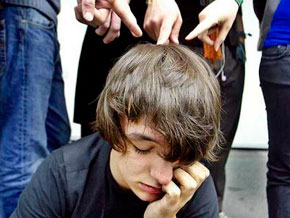In recent days, thousands of people on social media have been coming in and out of controversies involving different positions on President Dilma's crying, and also that of presenter Xuxa.
I know that their cries themselves can be seen as either false or true, late or opportunistic, well-edited or surprising. It is clear that for anyone who wants to classify these two "events" in each of these possibilities there are justifications for doing so.
However, I draw attention to the fact that they are contextualized based on two realities of violence: that of politically disappeared people and sexual violence in childhood/adolescence. It must be recognized that the visibility of these crimes is essential so that we can even think of ways to confront them, to hold those responsible accountable or to prevent them from recurring.
But, obviously, the transformation of these realities goes far beyond the tears shed. Public commotion is only part of the actions, and, I think, the least important part. Violence is faced with accountability/criminalization and also with public policies/education.
The problem is that we are so disbelieved in the possibility of celebrities being almost like us and the media fulfilling their social function that the visibility of this violence loses space to wise distrust: was it all in the name of IBOPE or, in fact, is there sensitivity in celebrities and political awareness in mainstream media? Because we know that IBOPE has been growing for some time with humanity's exploration of the stars. This is as true as the difficult and sad observation that dehumanization and violence also guarantee good profits for companies linked to television.
Let's look at the case of the journalist Mirella Cunha, from Band, which a few weeks ago repeated a common practice in some "journalistic" programs: dehumanizing others. Or reiterate that, according to the normalizing logic that many defend, there are some that are worth more than others.
In a dangerous attitude, she (together with the image editors, the director and presenter of the program, the broadcaster's sponsors/supporters...) disrespected the rights of a prisoner for the whole world to see. Faced with the tears of a poor, black young man, who had not yet been tried and declared himself innocent (a right that we all have) in relation to the accusation of rape, she humiliated, discriminated, judged and laughed.
At the level of such a "report", but dressed in unpretentious entertainment, only Alexandre Pires' clip. He, and his guests, manage to reproduce the sad image of black people as monkeys, of women as objects and the desire/affection of queers as laughable – the clip ends with one of the guests being mocked by Neymar and Pires for being a chick/ effeminate to have shown interest in him.
Such images were unfortunately interpreted as being non-prejudiced by the Attorney of the Republic of Uberlândia (MG), Frederico Pelluci. The worst thing is that the prosecutor argues that the clip is not sexist because women in bikinis and "suggestive lyrics" have been common in the media; as if discriminating had to be, necessarily, something not commonplace! In other words, it is the same as absurdly stating that racism, machismo and homophobia are not crimes because they are part of the culture! That no one can be held responsible, because many discriminate, but no one has ever been punished.
Both in the case of the crying of the exposed and ridiculed young black man, as well as the people in Pires's "song" video, what many call "just a joke" erases the real suffering, the violence experienced, the evil laughter, the disgusting discrimination that we should always face. Along with Dilma and Xuxa's crying, they are memories of problems to be solved. They should be seen as evidence/reports of consensual violence.
What do the reactions to these tears and cries cause in my daily life, in my trivial relationships with people, and, of course, in my impressions of the world and of myself? They legitimize prejudiced norms and reinforce contexts of aggression. They, seen as "normality", make it difficult for me to understand their true meanings. It clouds the accusations that are the basis of their motivations. And that's not funny at all. It hurts. Either we are sensitive enough to understand, or it will take us longer to be better, more human.
*Tiago Duque is a sociologist and has experience as an educator in different areas, from teacher training to street social education. Milita no Identidade – Fight for Sexual Diversity Group. He likes to think and act with those who want to do something new, in search of another possible world.


